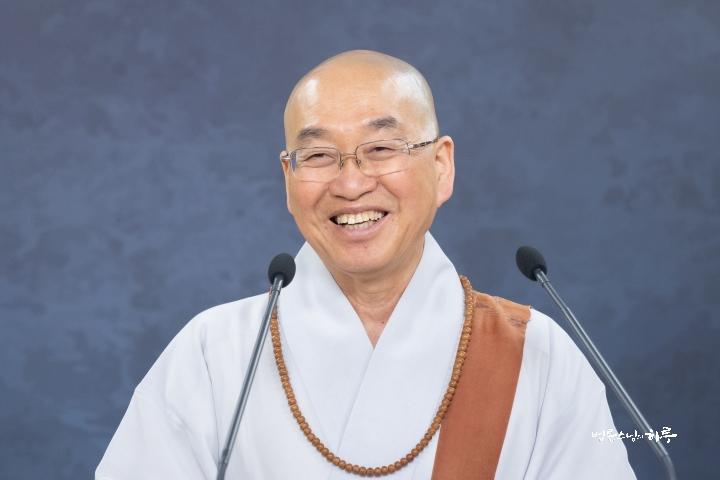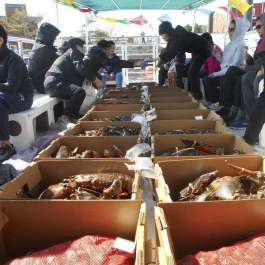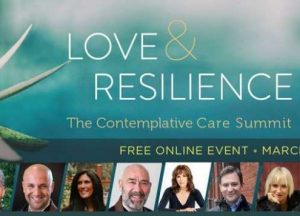
The Korean Seon (Zen) master Venerable Pomnyun Sunim (법륜스님) wears many hats: Buddhist monk, teacher, author, environmentalist, social activist, and podcaster, to name a few. As a widely respected Dharma teacher and a tireless socially engaged activist in his native South Korea, Ven. Pomnyun Sunim has founded numerous Dharma-based organizations, initiatives, and projects that are active across the world. Among them, Jungto Society, a volunteer-based community founded on the Buddhist teachings and expressing equality, simple living, and sustainability, is dedicated to addressing modern social issues that lead to suffering, including environmental degradation, poverty, and conflict.
The following article shared by Jungto Society is part of a series of notable highlights from Ven. Pomnyun Sunim’s writings, teachings, and regular live-streamed Dharma Q+A sessions, which are accessible across the globe.

Q. I feel a little frustrated, maybe a little angry and impatient about the need for significant political change. I worry a lot about injustice, climate change, corruption, and democracy. I just wonder what is, in your opinion, the best sort of Buddhist way to seek political change, but quickly. I mean, how do you feel about civil disobedience? Do you recommend that we do that? Do you feel that we are experiencing a serious existential threat over the political issues that we have? I’m just wondering, what is your take?
Ven. Pomnyun Sunim: The essence of the Buddhist teaching is the Middle Way. This actually means doing your best under the situations and conditions in which you live. So the middle way is not talking of some fixed way; instead, it means that you are flexible and able to change strategy and direction according to the situation and environment in which you find yourself.
If you take an individual for example: it is much easier to change an individual’s thoughts than their emotions. This is because thoughts reside in our consciousness while emotions reside in the subconscious.
Karma refers to emotional-cognitive habits, and it takes time for you to change that. So if you try to affect change quickly, it won’t work. If you feel disappointed over the fact that your habits do not change quickly, then you might start blaming yourself and suffer as a result. If another person’s habits do not change quickly, then you might start blaming them and become angry at them.
But it is very natural not to be able to change quickly. Change needs a lot of failures, trial and error; it needs time. So it is this unrealistic sense of urgency that is making us angry, hateful, and disappointed.
As such, we must have insight into and awareness of that principle before we begin. And that is why we study history. There are many singular events throughout history that have failed. But from a historical perspective, many of them actually succeeded, because that change was something that could not happen just as a result of one single event.
So if you try to accomplish something at once, you will likely fail. Because change and improvement happen over time and through repeated failures.
Let’s take the environmental issue as an example. Our environment is in a very critical state. But if you look at the reality we are facing today, it is very difficult to affect change because consumption is deeply embedded in our everyday lives. And the values and criteria for success in our societies are closely tied with one’s capacity to consume more.
So although we might consciously recognize the dangers of environmental destruction, our habits force us to go on living the way we always have. Therefore, I think that no matter how much we try, there’s a strong possibility that we will be unable to change our way of living.
Then is that despair? Not so . . .
See more
Pomnyun
Jungto Society
JTS Korea
JTS America
International Network of Engaged Buddhists
Related videos from BDG
Dharma Q+A with Ven. Pomnyun Sunim
Wisdom Notes from Ven. Pomnyun Sunim
Related features from BDG
Ven. Pomnyun Sunim: Buddhism in a Divided World
The Hungry Should Eat: JTS Brings Buddhist Compassion and Relief to India
Engaged Buddhism: Seon Master Pomnyun Sunim Pledges 10,000 Tons of Food Aid for Children in North Korea
Engaging with Suffering, Realizing Freedom: An Interview with Ven. Pomnyun Sunim
Related news reports from BDG
Engaged Buddhism: JTS Korea Distributes Humanitarian Aid in Pakistan
Engaged Buddhism: Ven. Pomnyun Sunim and JTS Volunteers Visit Sujata Academy Project in India
Engaged Buddhism: Ven. Pomnyun Sunim and JTS Volunteers Bring 100,000 Gas Stoves to Rohingya Refugees in Bangladesh
Engaged Buddhism: Ven. Pomnyun Sunim Shares the Fruits of Compassion to Mark the Birth of the Buddha
Engaged Buddhism: Ven. Pomnyun Sunim Delivers Compassion to the Vulnerable in Korea
Engaged Buddhism: Jungto Society Delivers Compassion for the Vulnerable in Korea
Engaged Buddhism: JTS Korea Distributes Emergency Flood Relief in Cambodia
Engaged Buddhism: JTS Korea Donates COVID-19 Relief Supplies to Myanmar in Cooperation with INEB and KMF
Engaged Buddhism: Jungto Society Sharing the Gift of Compassion this Winter
UPDATE: Buddhist Relief from JTS Korea Transforming the Lives of Rohingya Refugees
Engaged Buddhism: JTS Korea Brings Warmth to Vulnerable Communities amid Winter Freeze












